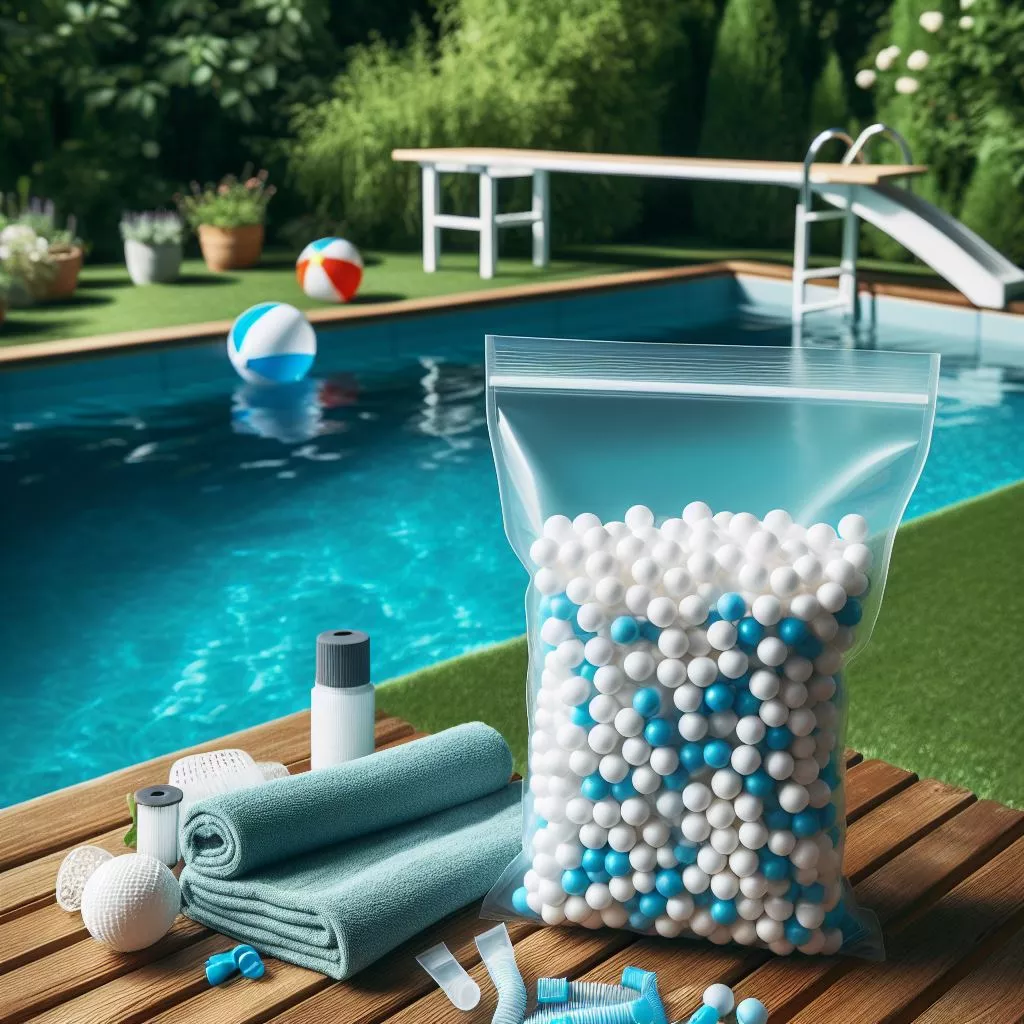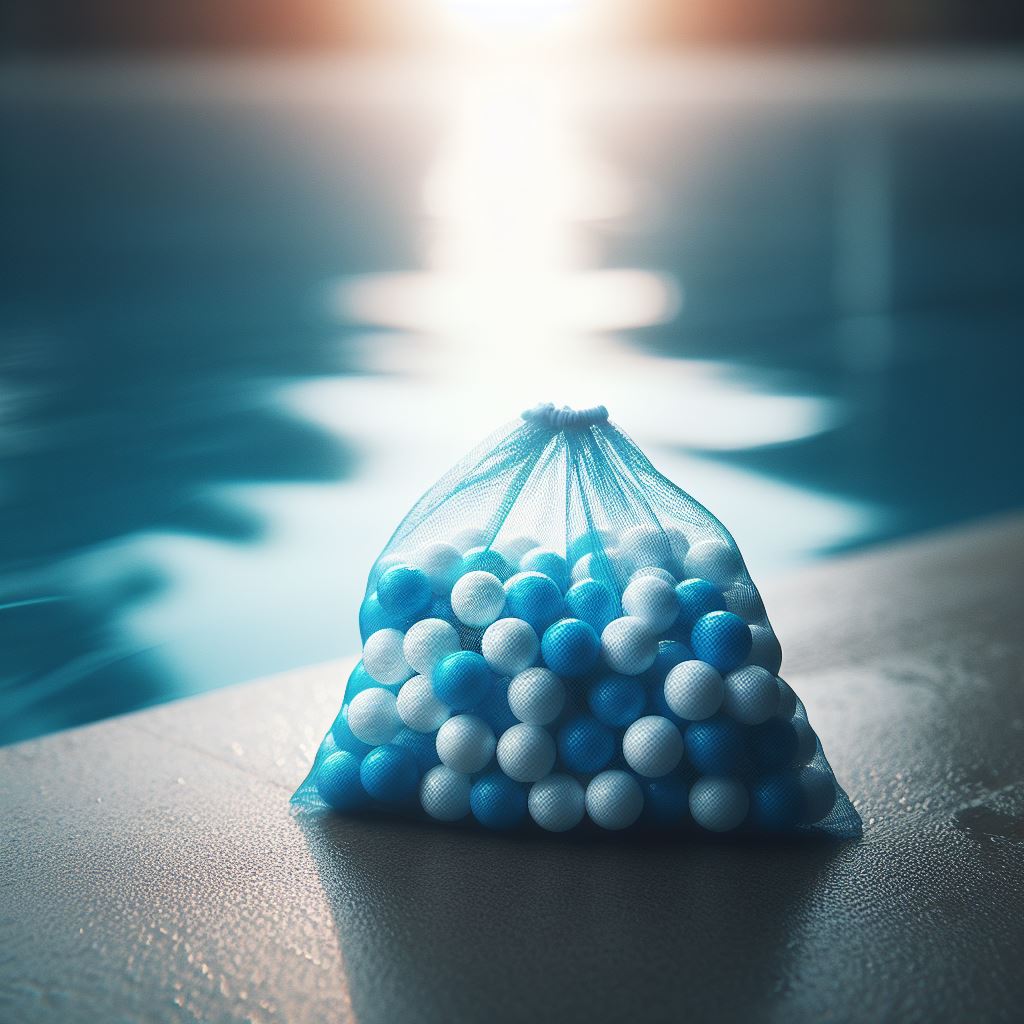Swimming pool filter balls, a modern pool filtration medium often used as a substitute for traditional sand and filter cloth, offer the benefits of light weight, high filtration efficiency, and easy maintenance. However, they sometimes encounter issues with clogging the filter during use. This article explores the main causes of clogging in pool filter balls and provides some prevention and resolution tips.

1. Physical Properties of Filter Balls
Filter balls are usually made from materials like polypropylene, designed with a porous structure on the surface to trap impurities. Although this design helps increase filtration efficiency, it also raises the risk of clogging. When the amount of impurities in the pool water is too high, these particles can fill the tiny pores of the filter balls, causing an obstruction in the water flow.
2. Types and Quantities of Contaminants in the Pool
Factors such as the frequency of pool use, poor pool water maintenance, and environmental conditions can increase the number of contaminants in the water. For example, leaves, sediment, grease, and cosmetic residues can enter the filtration system with the water. Filter balls may clog quickly when dealing with large quantities of such pollutants, especially if the particles are large or particularly adhesive.
3. Design and Maintenance of the Filtration System
Inadequate filter design can also lead to clogging issues with filter balls. For instance, the capacity of the filter may be insufficient for the volume of water in a specific pool size, or the circulation speed of the filtration system may be set too high, preventing the filtration medium from effectively processing the water passing through. Additionally, lack of proper maintenance, such as regular cleaning and replacement of filter balls, can increase the risk of clogging.
4. Improper Chemical Treatment
Improper chemical treatment of pool water, such as the use of disinfectants and control of pH levels, can also impair the functionality of filter balls. For example, a high chlorine environment may degrade the material of the filter balls, increasing the risk of material fragments clogging the filtration system. Extreme fluctuations in pH levels can also affect filtration effectiveness.
Prevention and Resolution Recommendations
To reduce the problem of filter balls clogging the filter, the following measures can be taken:
Regular Inspection and Cleaning: Regularly check the condition of the filter balls and filter, and remove accumulated impurities to ensure an unobstructed filtration system.
Optimize Pool Maintenance: Adjust the use of chemical treatments appropriately, regularly test water quality to ensure the pool water is clean and chemically balanced.
Adjust Filtration System Appropriately: Based on the actual usage of the pool, adjust the operating parameters of the filter, such as flow rate and cycle period, to meet actual filtration needs.
Use Suitable Filtration Media: Choose the right capacity and type of filtration media based on the size and usage frequency of the pool.
By implementing these measures, the issue of filter balls clogging during filtration can be effectively reduced, ensuring the cleanliness and safety of pool water.
